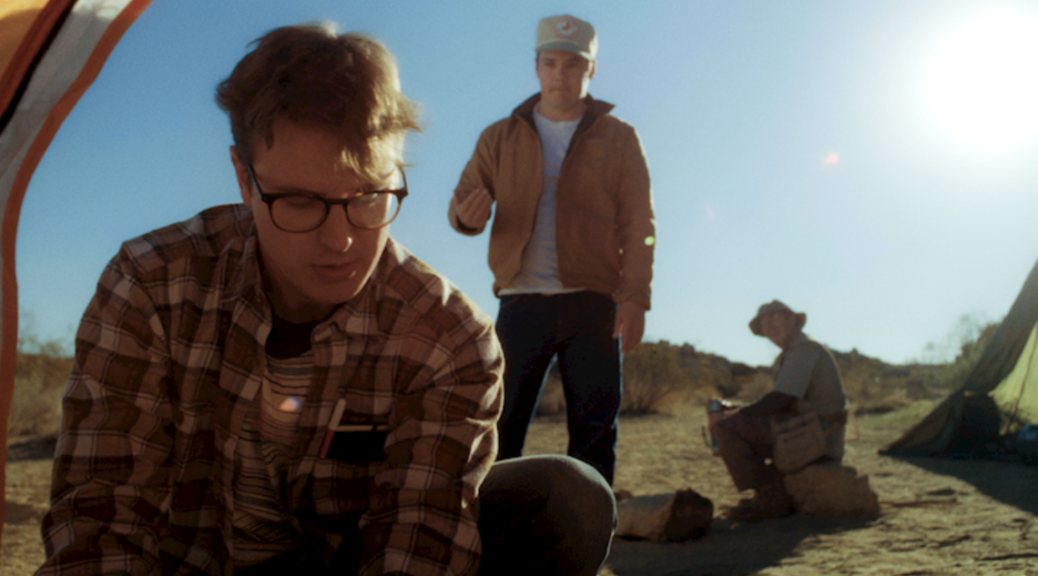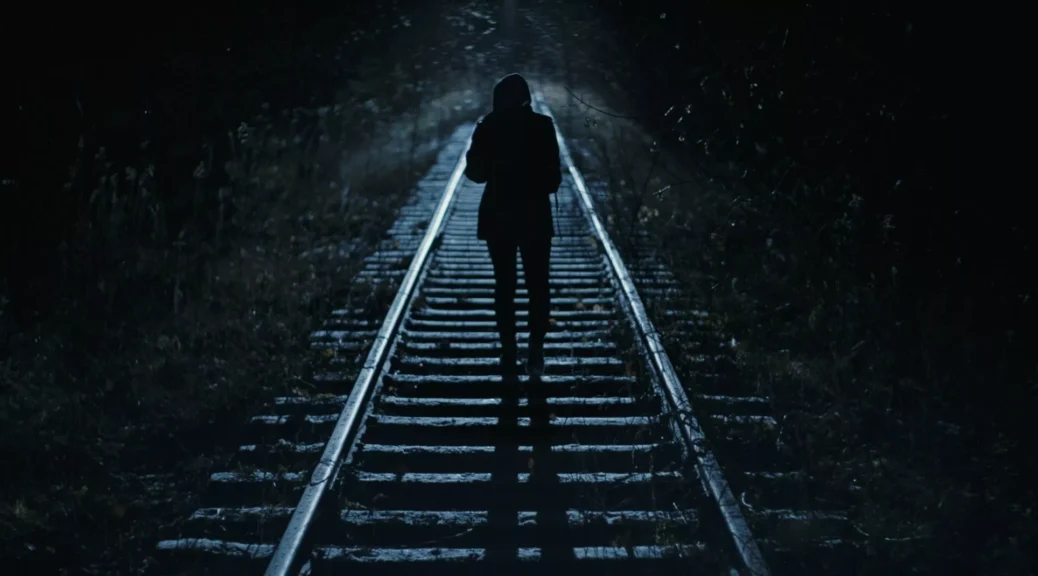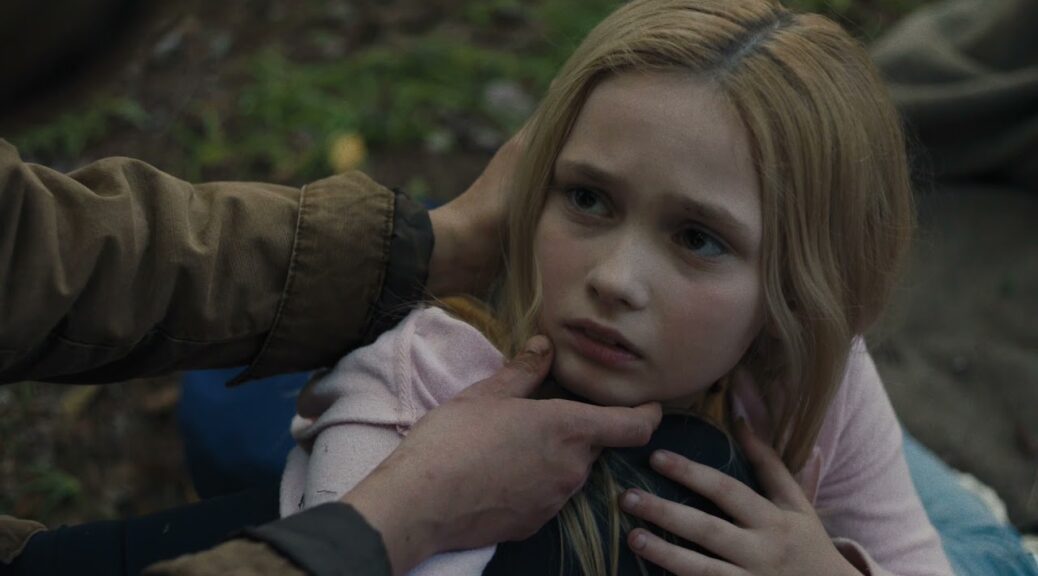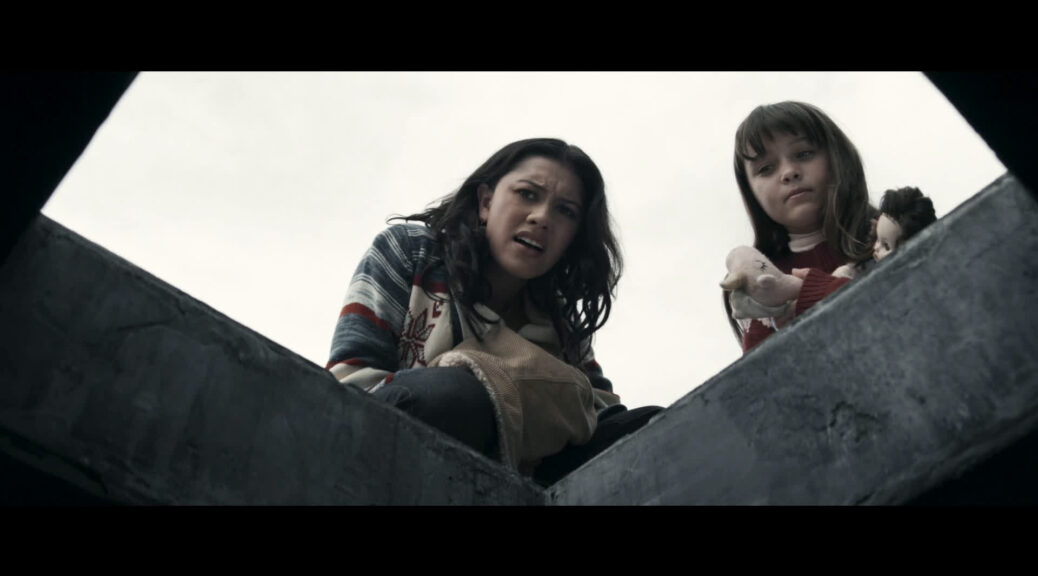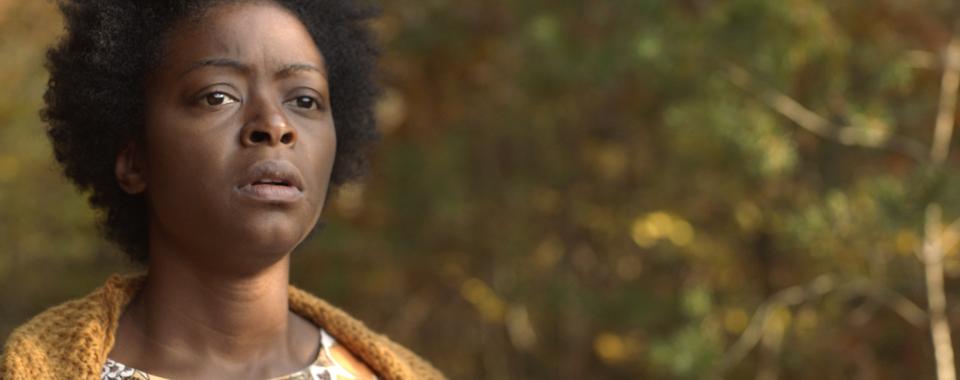Foil
by Christie Robb
When high school buddies Dexter (writer/director Zach Green) and Rex (writer Devin O’Rourke) meet up again on the eve of their ten-year reunion weekend, they decide to make the catch up more exclusive and head out West—into the sunset.
Or, in this case…East.
They’re taking the road from Bakersfield, CA into the desert toward a camping trip for two. To Olddale, where there’s rumors of a paranormal vortex.
Dexter hopes the mysterious vibes will unlock a font of inspiration. He’s a struggling director with a pitch meeting on Monday and a notebook full of empty pages and the concept “Big Bugs.” Rex is hunting UFOs. He’s convinced that he was abducted in high school and has the scar to prove it. And rumor has it that the vortex was caused by a UFO that crashed there 60 years ago.
When a chatty stranger (Chris Doubek) wanders into camp with a piece of purported alien foil, Dex and Rex butt heads on how to deal with him.
It’s a promising set up. The establishing scenes recall a young Kevin Smith—quick, self-effacing slacker banter in a 1997 video store. Background characters pop up, delightfully steal scenes, and then vanish (Ari Stidham from TV’s Scorpion as Felix the video store manager!)
The team got a lot of the technical stuff right. The desert is beautifully shot, all dusty golden hour and dramatic rock formations. The score is vintage western. Twangy, lived in, a bit camp. A great vibe for the project.
The second act rambles. Sometimes bromace. Sometimes X-Files. Sometimes stoner comedy. Often the Odd Couple. But not quite enough of any of the elements.
Our heroes are placed in physical danger. Their relationship teeters on the brink. But it doesn’t quite come together. In the end, it’s unclear who, if anyone, the audience is rooting for. But an adventure was definitely had.
